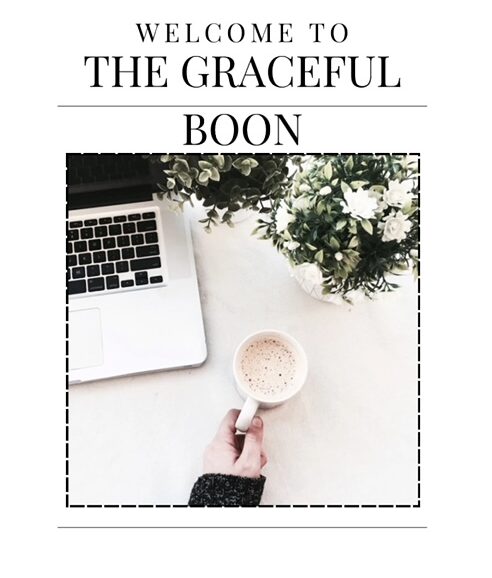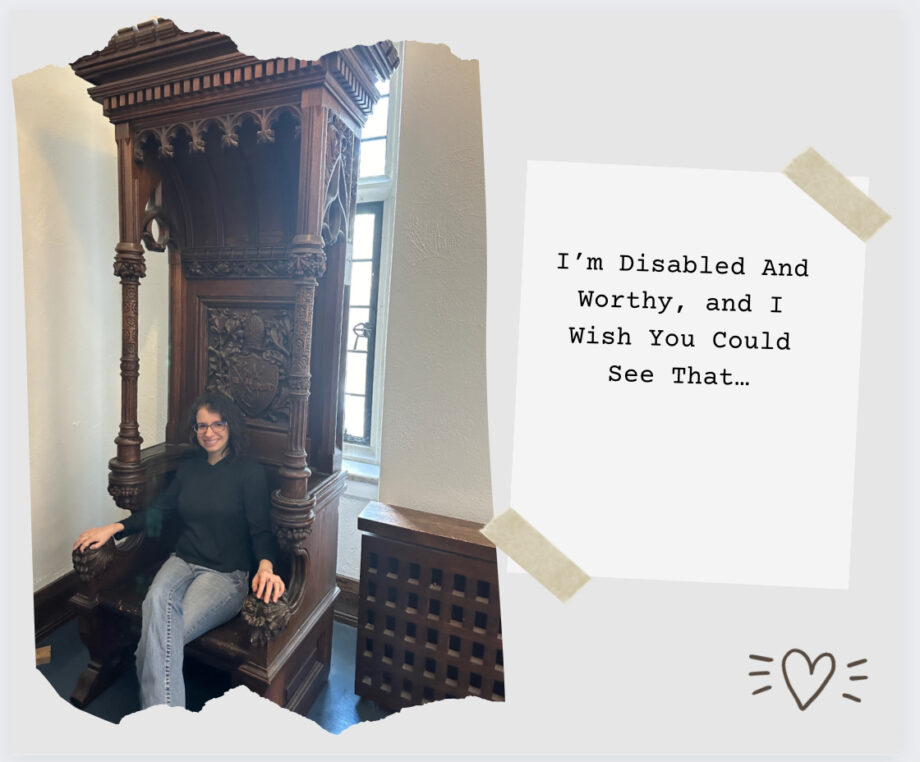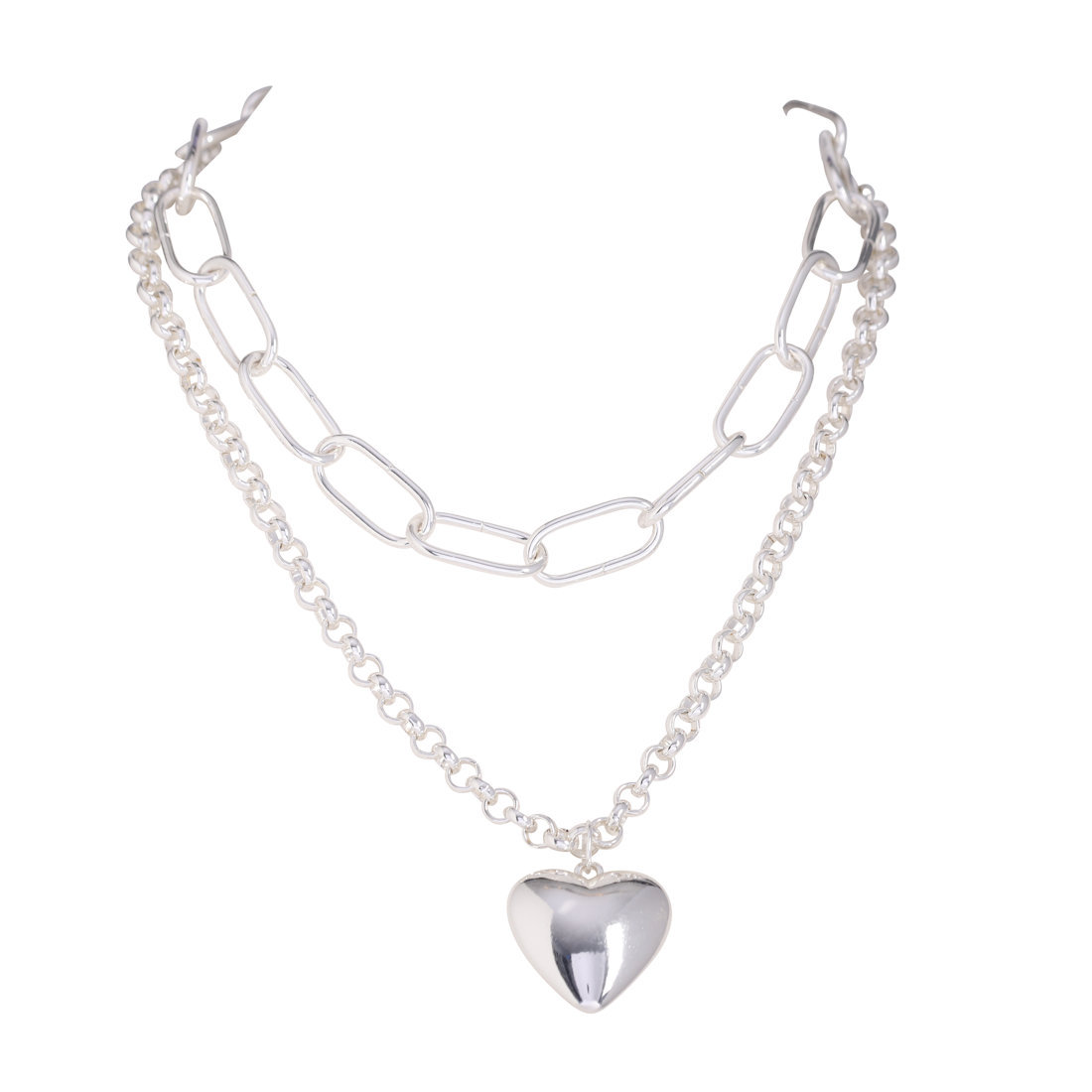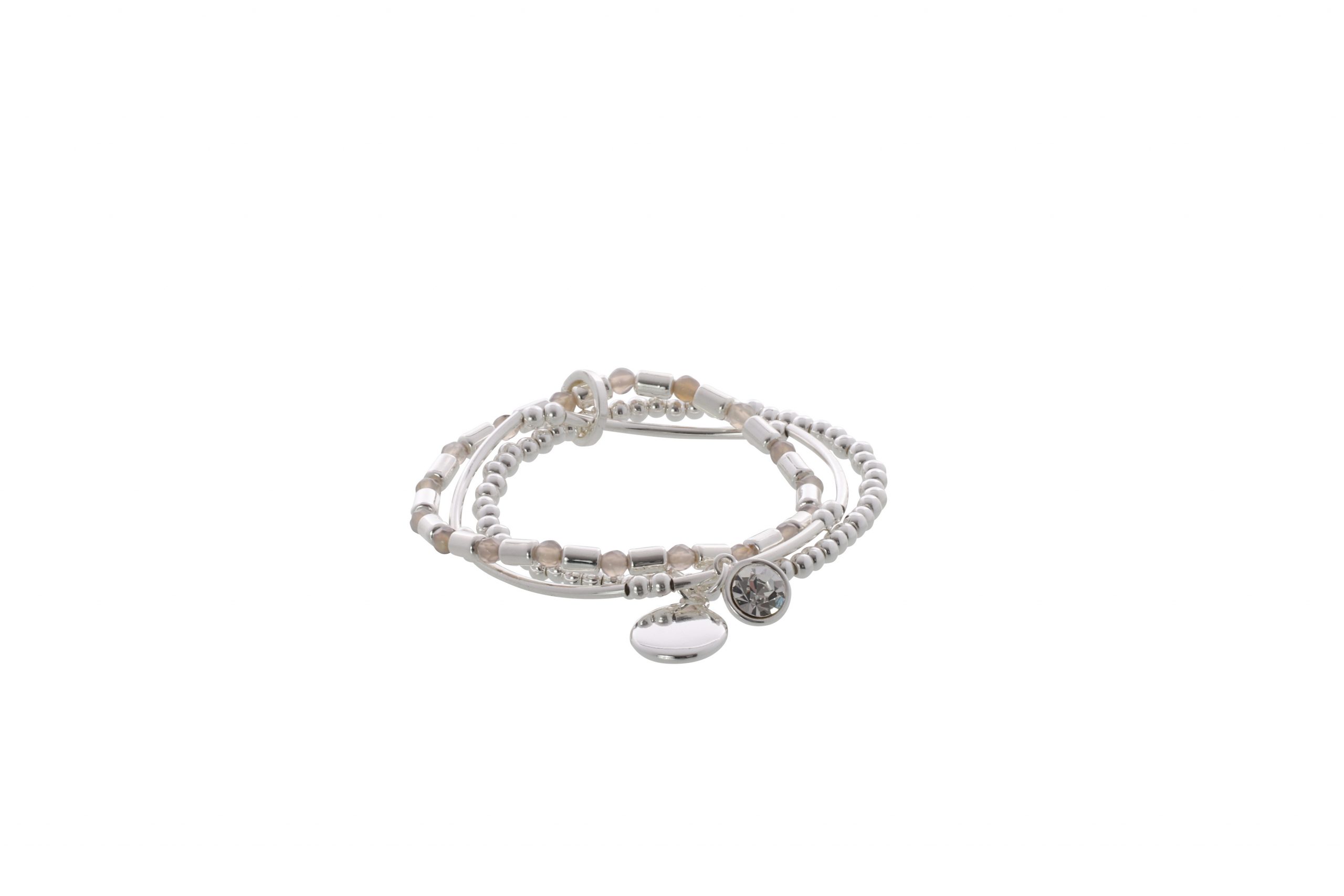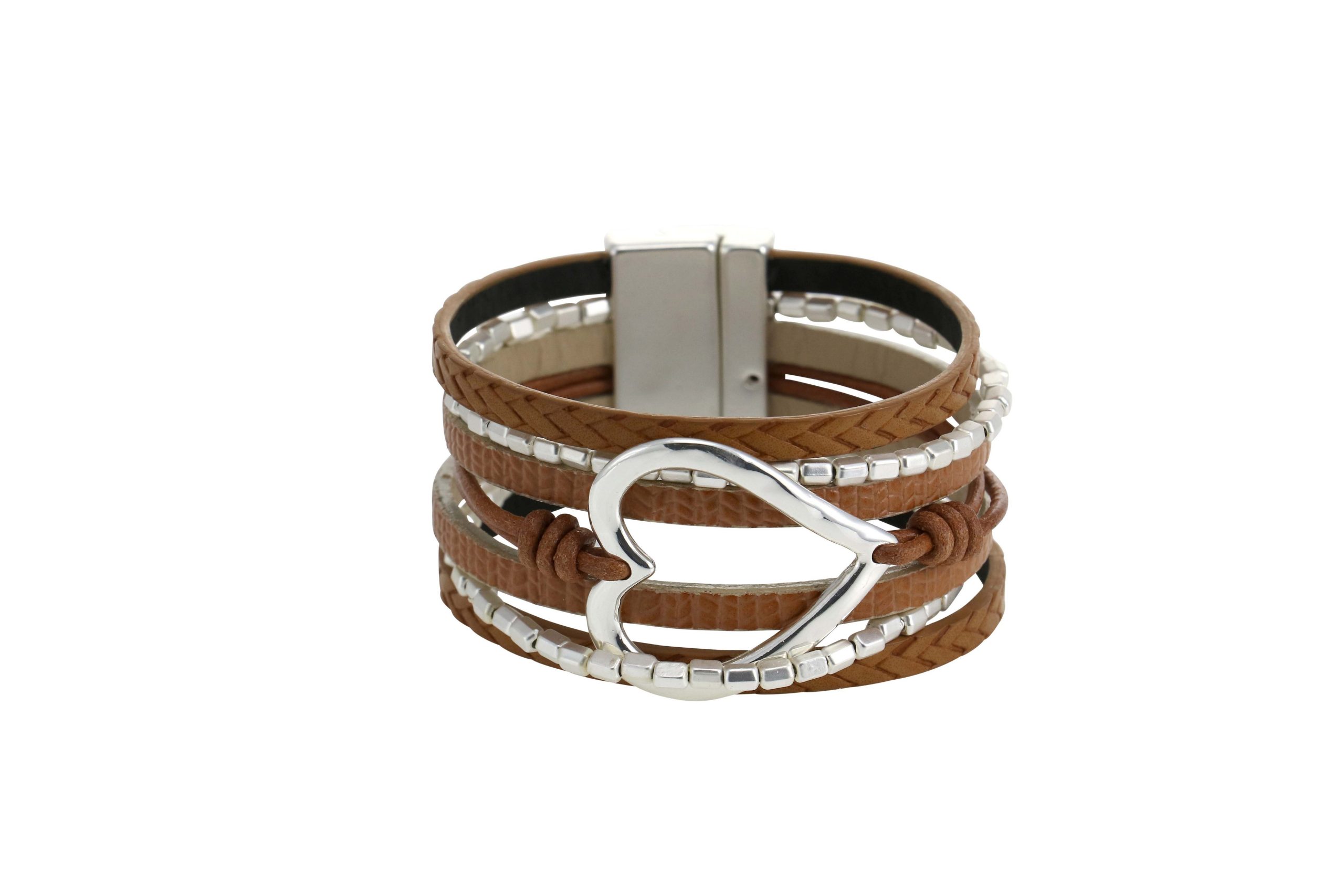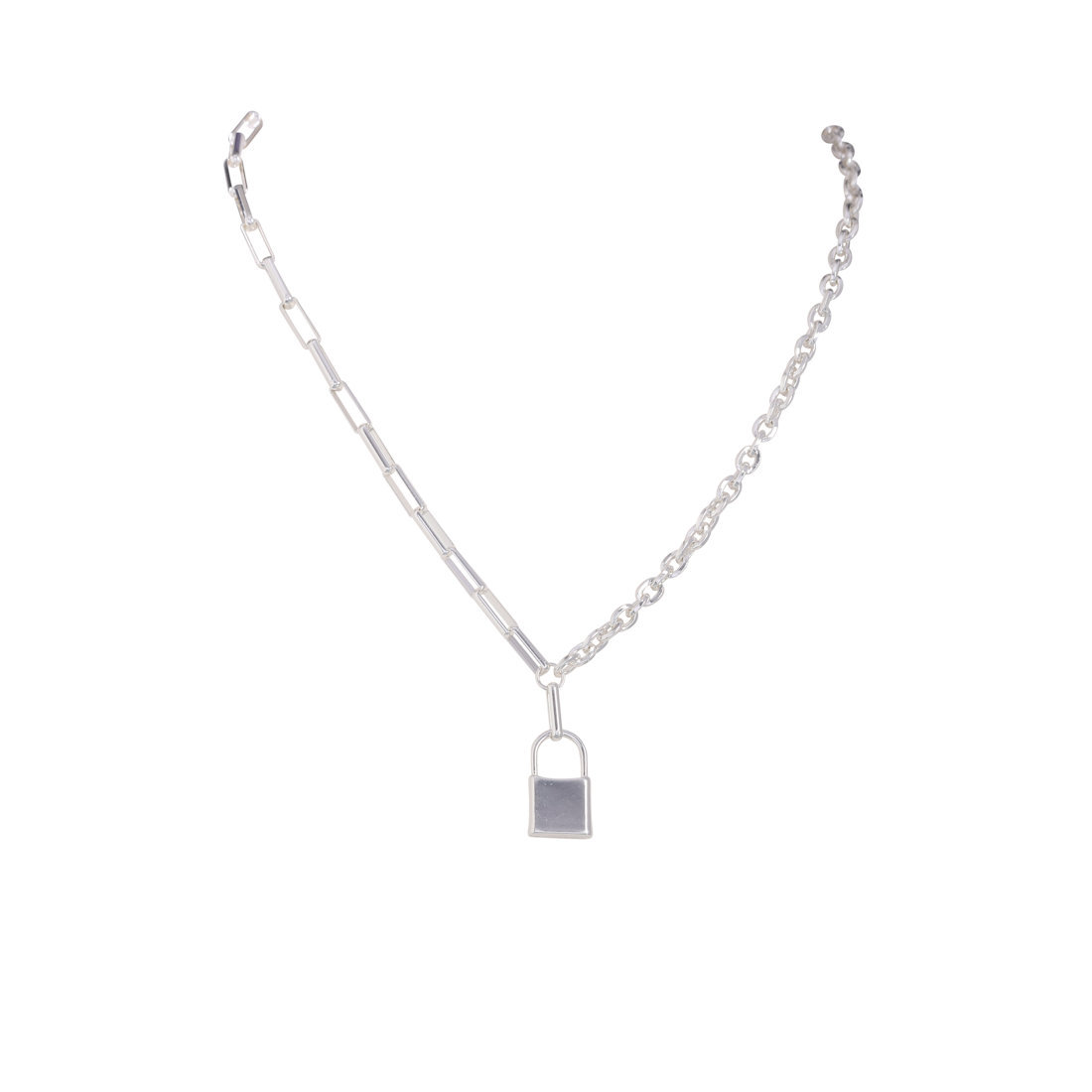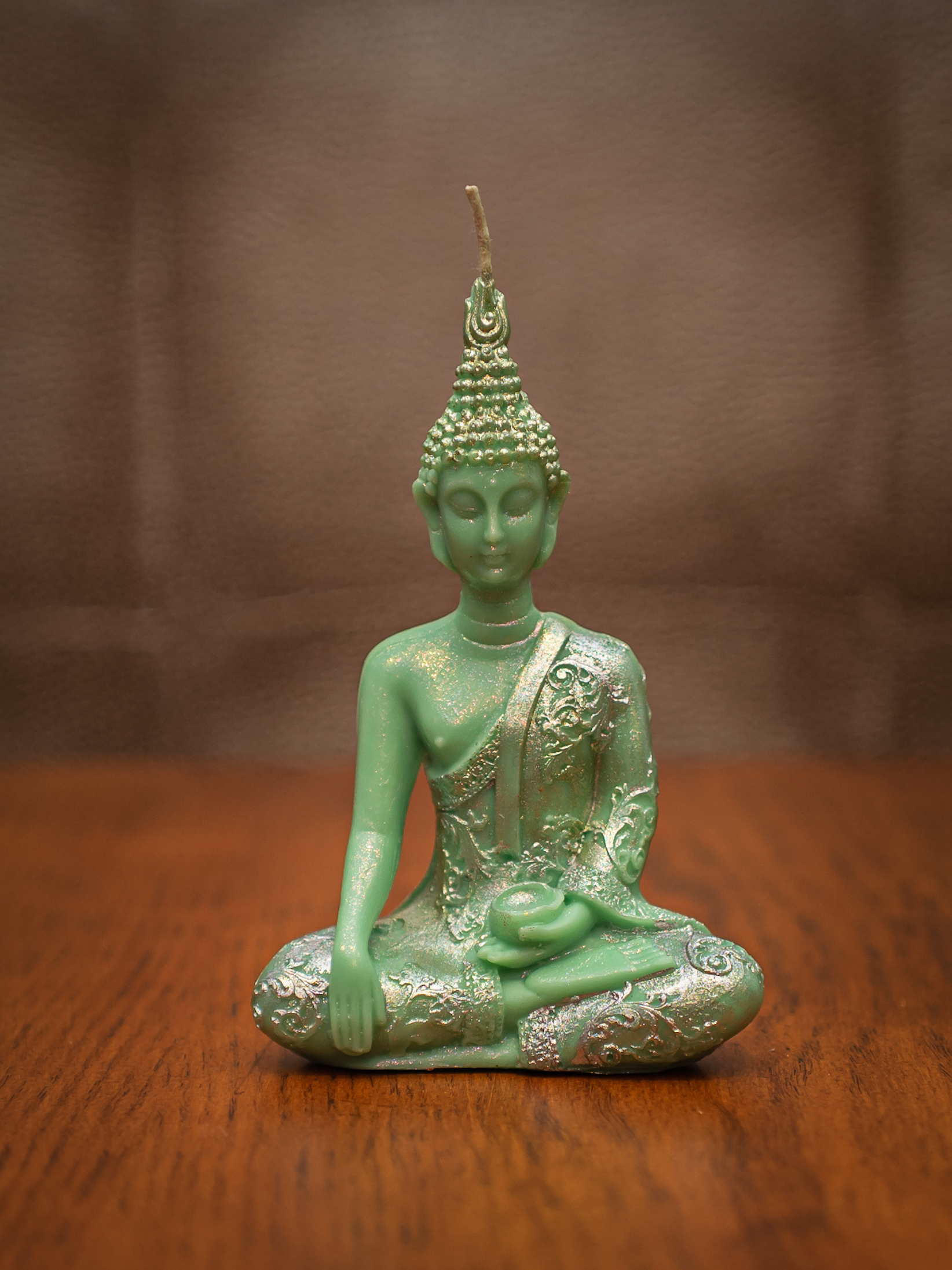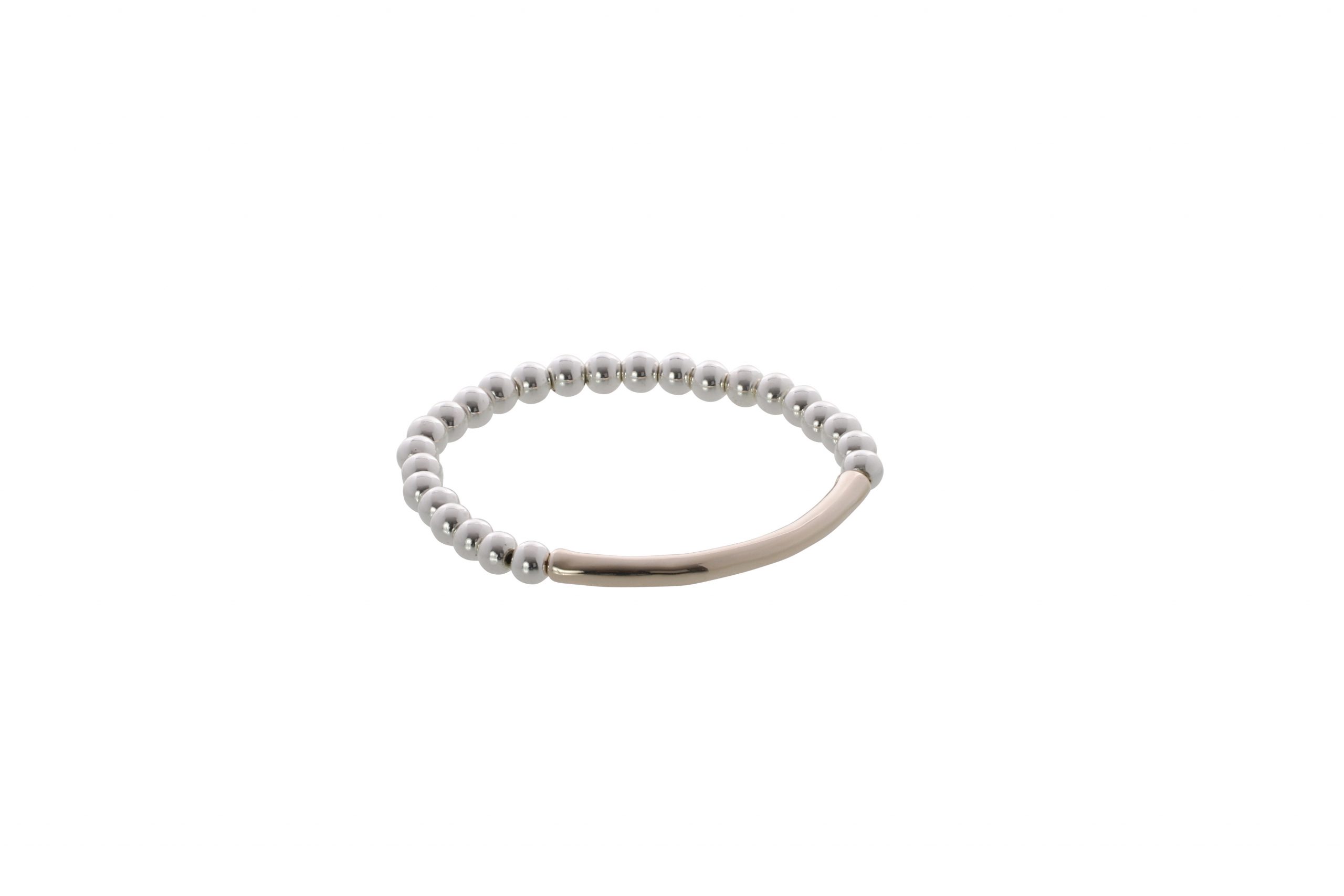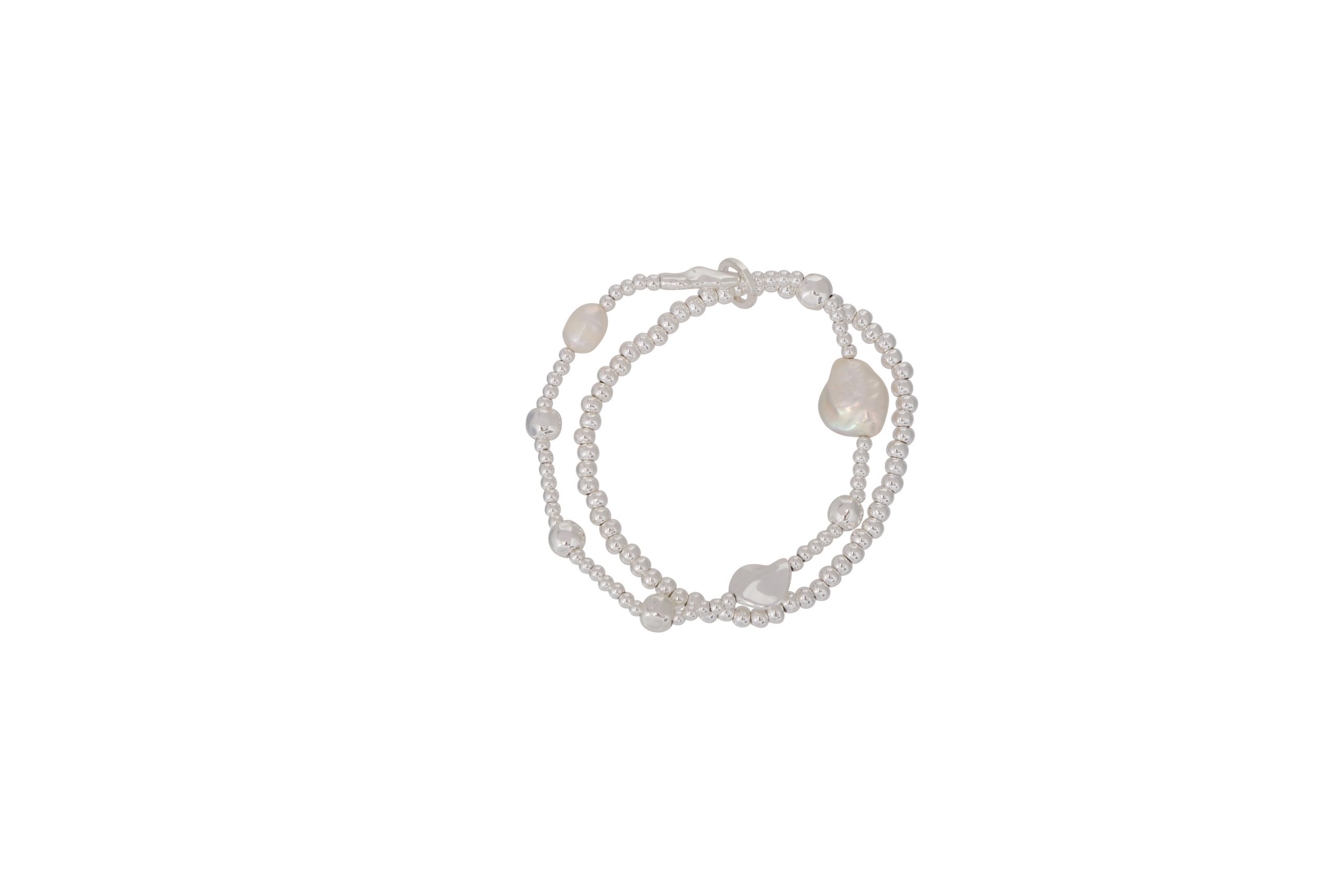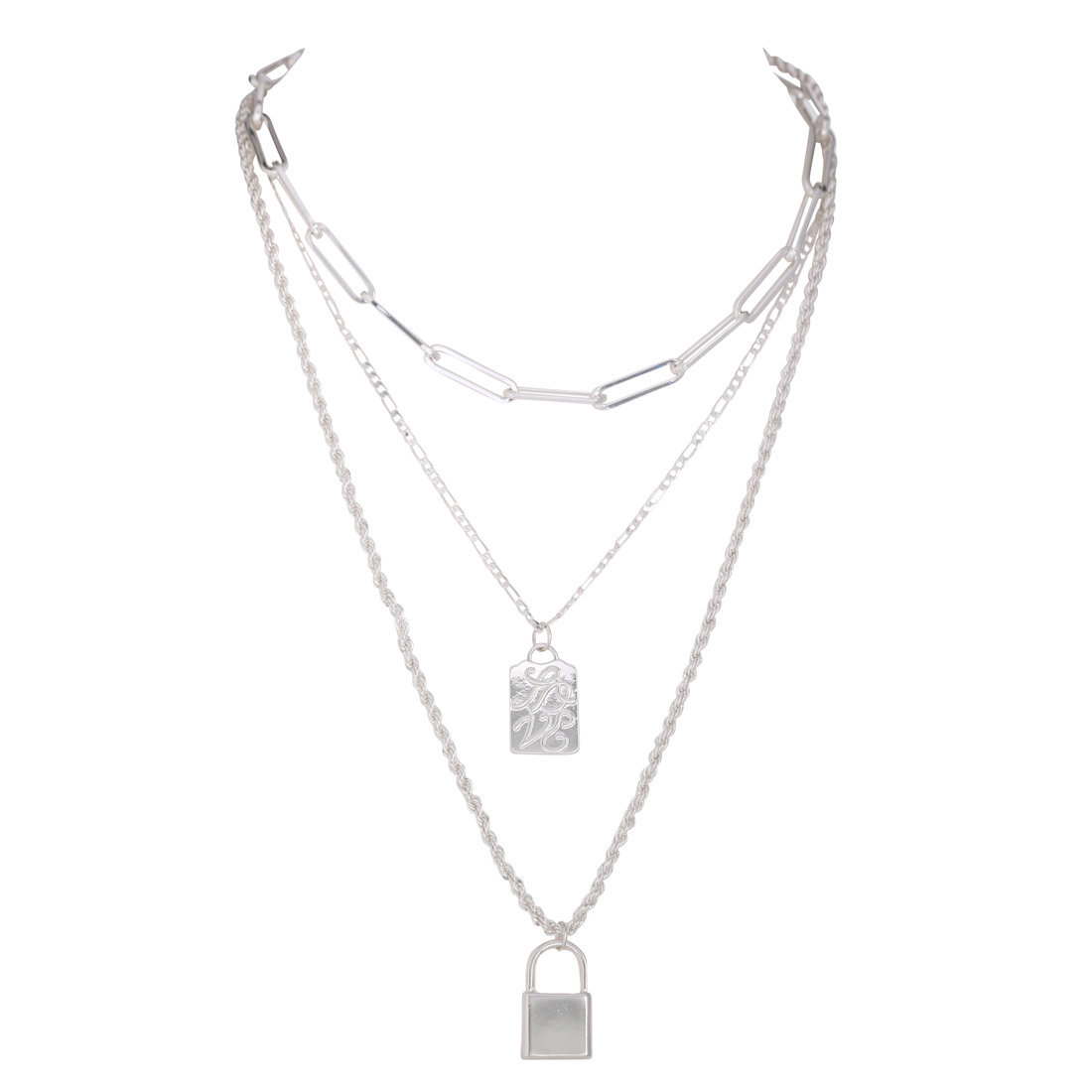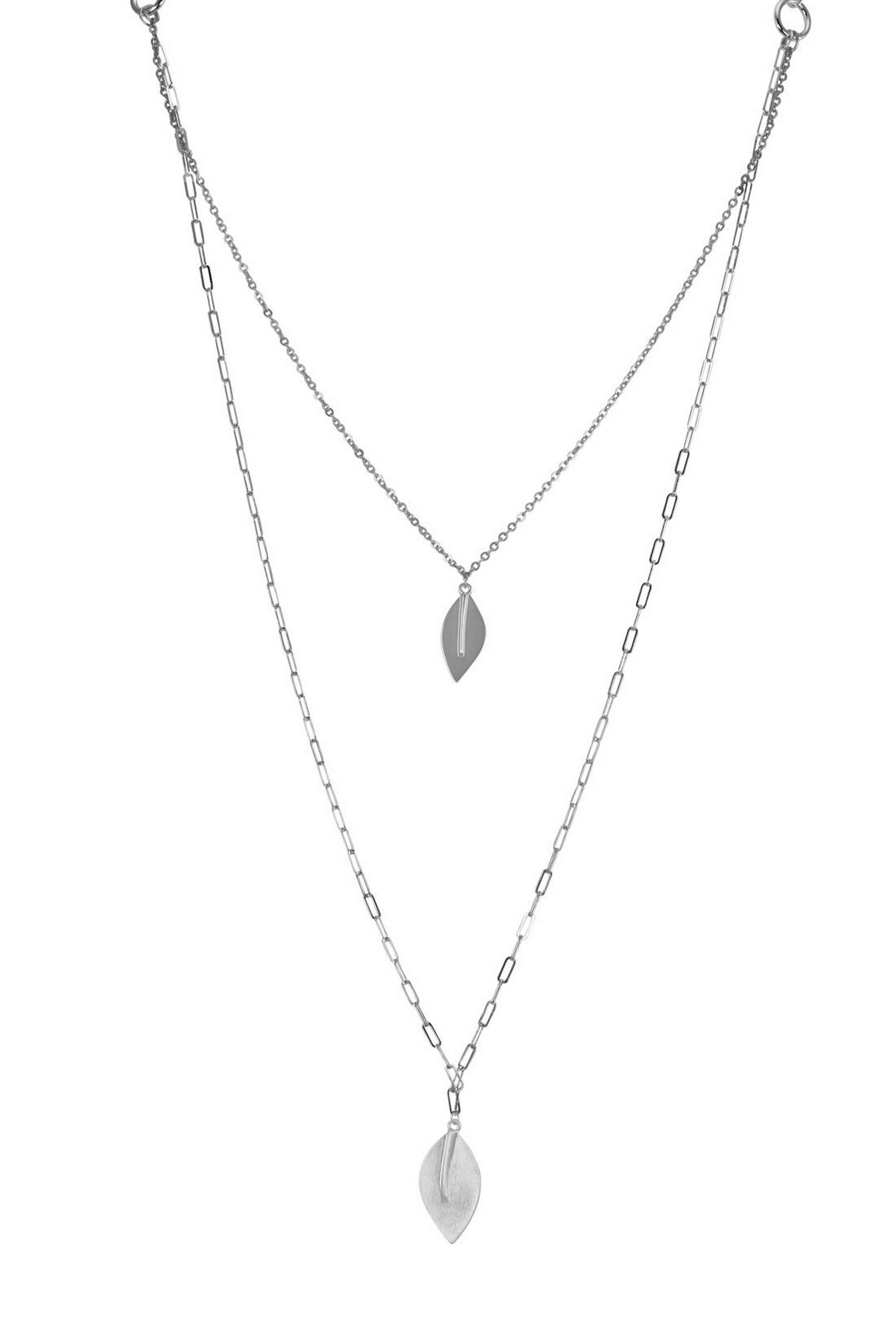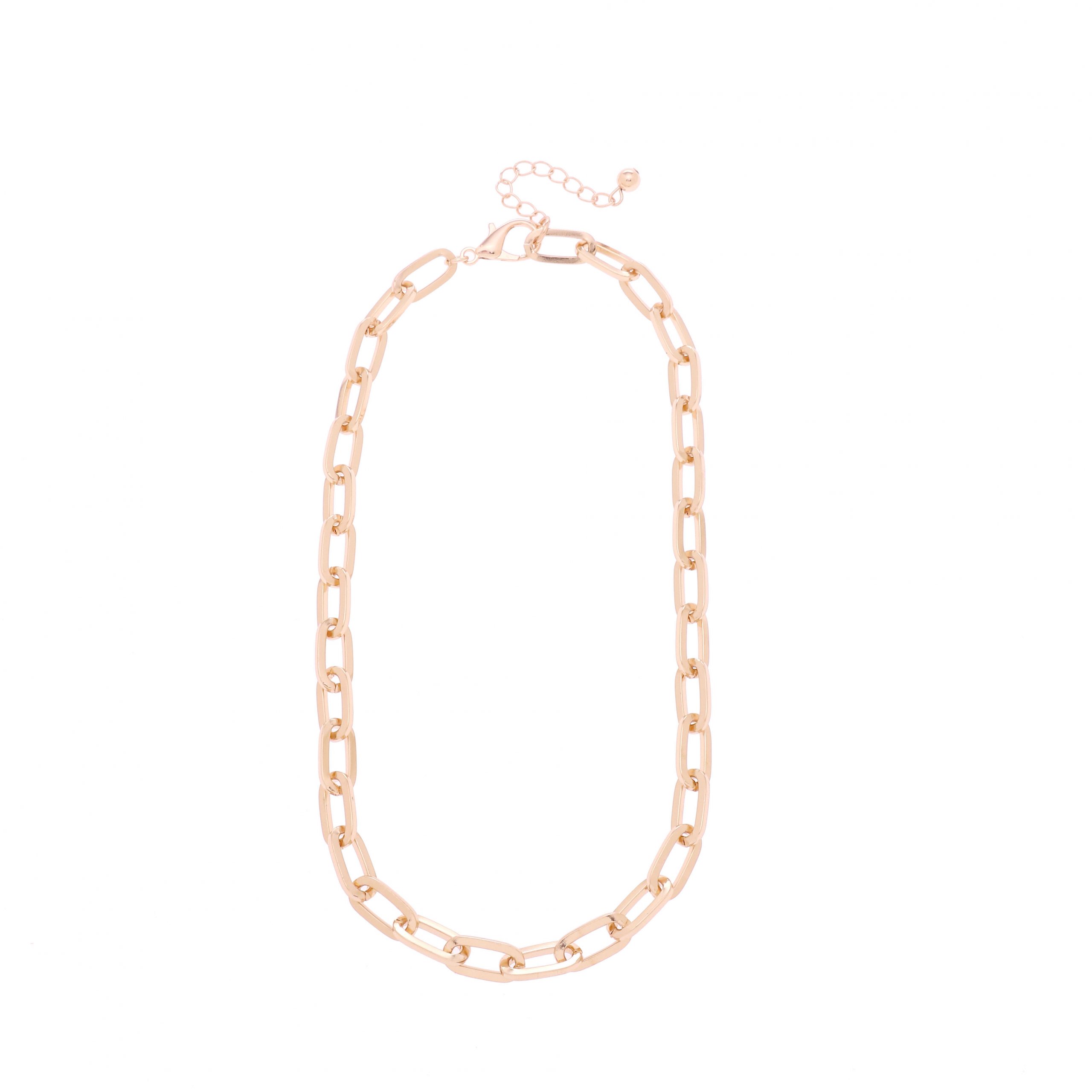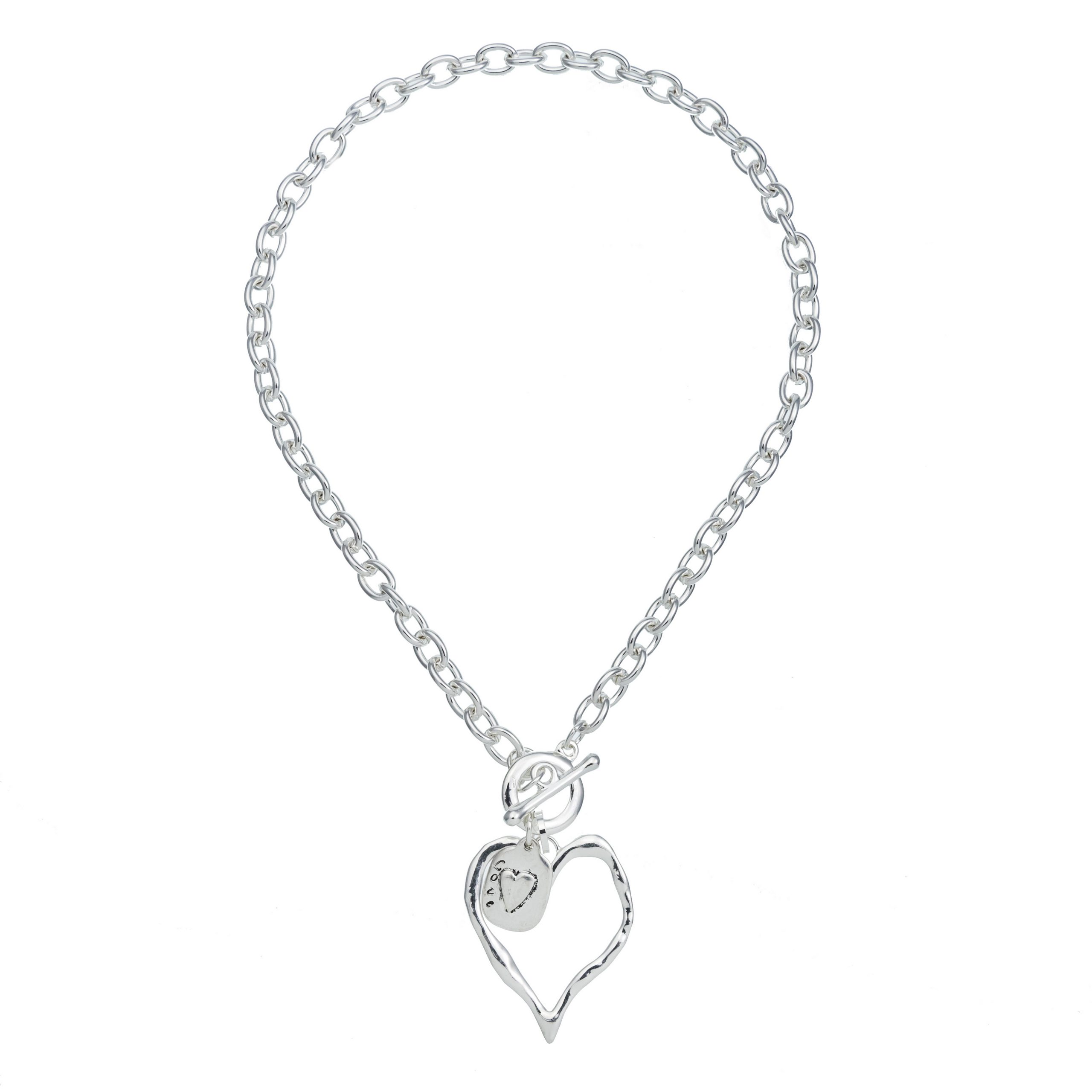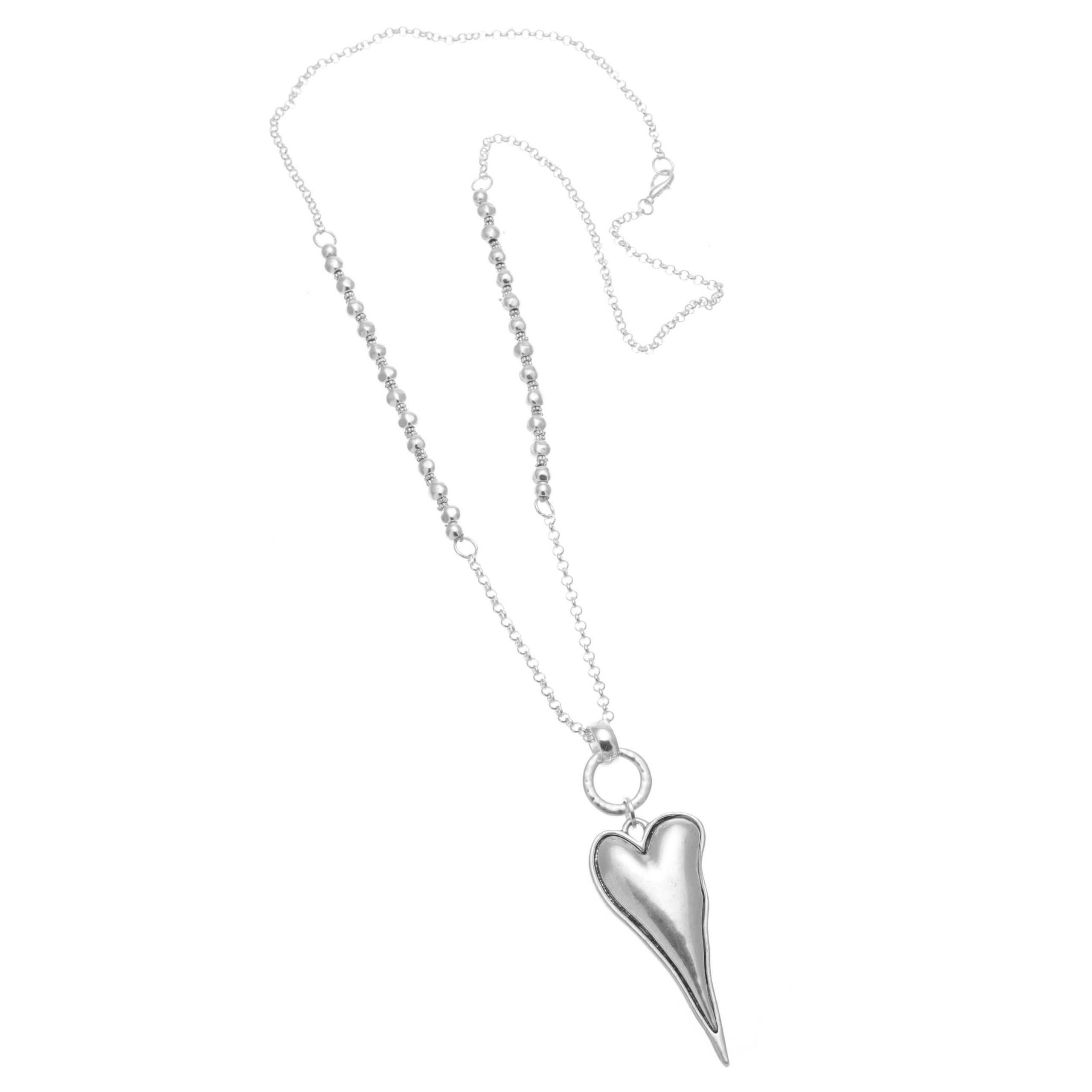My previous post heavily mentioned abelism. Specifically, the ableism I’d received from my father-in-law. There are plenty of people out there in the world who have the same opinions on disabled people as he does. Moreover, he made his assumptions of me and stuck by them for the past 12 years since he first met me strictly based on what he ever read about cerebral palsy. He even gave my husband an entire book, probably written by a doctor who retired in 1975, all about cerebral palsy to prove to my husband that I had no place in his life, nor in society for that matter. He never got to know me beyond my disability; he refused to, and that’s on him. The rest of my husband’s family, on the other hand, are very supportive, and they got to know me for the person that I am rather than for my disabilities.
My father-in-law said many, many things in his arguments to get my husband to break up with me so that he could forget about my existence. And he didn’t just talk smack about me with my husband, he also had the audacity to talk sh*t about me to my parents. My previous post has the entire 16 of them. None of his arguments had any validity in regards to me and my life. But they did have some validity to them when it comes to cerebral palsy generally speaking. My favourite pointer, though, was that I’d be in a wheelchair by the time I’m 40. That’s a real kicker and I have no idea how this nonsense idea even came to be. A person who has cerebral palsy doesn’t just become bound to a wheelchair due to the disability itself. Nevertheless, anyone in the world could be bound in a wheelchair for reasons that have nothing to do with cerebral palsy.
One pointer of his, specifically, I’d like to discuss further, and that’s disability and employment. These two almost don’t mesh well together. When it comes to employment, people with disabilities are entitled to be treated as equals. The right way to phrase it would be that disabled people are SUPPOSED TO be treated as equals, because, in reality, disabled people are treated as anything but equals.In fact, according to research, disabled people are considered to be the poorest minority group because they, I mean we, aren’t given equal opportunities.
Neurofibromatosis is a rare genetic condition that leaves a person’s skin covered in thousands of thick, painful tumours. It affects about 100,000 people throughout the United States, and only a few million in the world, Dr. Kaleb Yohay, the director of NYU Langone’s Comprehensive Neurofibromatosis Center. Patients either get the disorder from their parents or a random genetic mutation. Adam Pearson, an actor, is one of those 1 in 100,000 statistic. During his interview with Variety, Pearson opened up about the lack of opportunities people with disabilities face, and how disabled actors are stereotyped.
“Normally there are three kinds of roles or tropes or stereotypes, whatever vernacular one wants to use,” he explained. “There’s either the villain — that because I have a disfigurement, I want to kill Batman or James Bond. Then there’s the victim — the ‘woe is me,’ small violin. And then there’s the hero — that because I have a disfigurement but do regular dude stuff, whatever regular dude stuff is, I’m somehow braver than the average guy.
I think it’s lazy writing. Why are non-disabled people writing about disability without consultation? Because when that happens, the end result you might get it right once but nine times out of 10 it’s going to be really inauthentic and inaccurate and serve not only the disabled community accordingly, but disabled cinema lovers accordingly.”
And sometimes, a disabled person doesn’t get any opportunities in Hollywood. Last year, my husband got this crazy idea to sign our son up to be represented by a modelling agency. When we got there, the agent agree with us that the baby was cute; most likely because she knew she’d get money out of him. The conversation then turned to be more about us as parents and our backgrounds. I shared my story. I shared how I live with cerebral palsy; how I’m survived a potentially deadly car accident; how I was diagnosed with epilepsy following that car accident; and finally, how I turned my life around and how all of that ended up being the best thing that ever happened to me.
The agent was intrigued by my story, and was eager to sign me. In her words, the baby was cute, but I was the interesting one. Even though I hesitated, I decided to take a chance and get signed with the same agency I signed my son up for. With the exception of the $3,000 CAD that went with it, I really had nothing to lose. I have to say that the agent was really goof at her sales game. She actually managed to get me excited. She made me believe that at least someone out there in the real world believed in my potential and didn’t just see me for my disabilities. Months later, though, neither I nor my son got any gigs. My son at least got an audition, and my husband and I got the chance to make a fun, little video for it.
At first, I blamed this for the 2023 SAG‑AFTRA writers’ strike (I previously wrote multiple blog posts about it on the blog). Then the strike ended, and my son and I still weren’t getting any gigs. So I called the agency and asked them nicely, ‘Where the f*ck are my gigs?’ I wanted to know if they were even doing their job that they so promised me and sold me on. The agent sent me an email with the lists of potential gigs she sent my and my son’s information for. My son had about 20 on the list, whereas as I had more than 100. I was utterly disappointed. Adam Pearson was being typecast for his disability, but at least he was getting work. I, on the other hand, wasn’t getting any work whatsoever.
I was disappointed, but moreover, I was embarrassed. Here I was trying SO hard to get a new path going for me, and I was failing yet again. For a while, I thought there was something wrong with me. I blamed myself for being in a position that I was in. I was telling myself that I wasn’t good enough; that I wasn’t skilled enough; that I wasn’t pretty enough. And, in some cosmic way, I wasn’t disabled enough. When people think of disability, specifically a physical disability, they think of someone who’s in wheelchair. Though I have cerebral palsy, I’m not in a wheelchair. When people first look at me, they think I’m injured. A lot of people are surprised when I tell them I have cerebral palsy, or they’re just lying to me just to be nice.
No matter the case, I never felt like I belonged to any sort of group of people. I was always too disabled to be an able-bodied individual and be considered to be part of the ‘normals’, and I wasn’t disabled enough to be part of the disabled minority. I could never relate to anyone like me, and people like me tend to not like me. Dating back to my teen years, it’s probably because I lead the normal life that they wish they had. It became very clear to me once I met my now husband and built a life with him. As soon as that happened, they all disappeared from my life.
I wanted so badly to be part of the ‘normals’, and I still to this very day as a 30-something year old woman, wish that was the case. But that’s simply not true. The real, outside world is filled with people who are exactly like my father-in-law. Recruiters and hiring managers across Canada and the world too, even though it’s actually illegal for them to be such ableists. They may hide that fact about them by coming up with any other excuses that don’t involve someone’s disability, but it’s obvious enough. A company might have a quota in place for them to hire someone with a disability, but they simply don’t follow that quota. Disabled people are always put in a box, and it’s not just in the entertainment industry like Adam Pearson said, but in regular life too. It’s just assumed that we’re too much of a hassle and will cost too much money to the company if hired before anyone even gets to know us.
I’ve had so many conversations about the job market as of late, specifically in 2024, and I realized that it’s not just people with disabilities who are struggling, but everyone else who’s in the job market now too. Companies and hiring managers are all about budgeting nowadays. If they feel like someone will cost too much money to the company, they’ll simply not even be considered, and their resume will be tossed in the garbage. I have numerous friends who are now in the job market since the year 2023 for all very different reasons, and they all say the exact same thing about it. It’s either that they have too much experience, too little experience, asking for a salary that’s too high and the company isn’t not willing to pay, or someone just comes up with random excuses not to call them for an interview. Now with the extensive use of AI, it’s gotten even easier for hiring managers to not hire someone who has a real potential to be successful in a job opening they’re so qualified for.
One friend who’s now in the job market told me that to get a job nowadays, you have to know someone internally who can refer you. I can’t say that I agree. I’d been trying to get a job at a specific company for more than a decade, where I know not one, but two people who’d worked there who kept referring me and putting in a good word for me. And yet, 10 years later, I STILL don’t have a job there, and I never got a single interview there. Whether or not it’s because of my disability is another question I need answers for.
And because I’d been put in a box by society because of my disability, I had no choice but create my own opportunities, such as my freelancing career, my book, my social media influencing, and of course, this blog that I’m so f*cking proud of. To say that it hasn’t been easy would be an understatement. But I know my worth. I know I’m damn good at what I do. I know I’m a good writer. I’m actually a GREAT writer. I just wish the real world would start seeing me, and other disabled people in general, strictly for my disability. I’m way more than my disability. I’m worth a lot more than my disability. I can do so much more than any able-bodied person can do. I want this a lot more than an able-bodied person ever would. I work 10 times harder than an able-bodied person does.
While writing my previous post, I couldn’t help but think that my cover letter needed a refresher. I needed to show recruiters and hiring managers, and even clients if they ask for it, that I’m a f*cking champion. I’m not a champion at any competition or a Paralympic game, but rather in life – personal and professional. So I started writing back to the time I was graduating college in 2015. When I was two weeks away from graduating, I was involved in a car accident that left me with a brain injury. With the help and accommodation from my professors, I was able to be a college graduate on time. After 6 month of unsuccessful job searching, I started my freelance writing business, and I worked hard while struggling while being newly diagnosed with epilepsy and struggling with frequent seizures. Unlike my experience with the job searching, which I explained further in my previous post, my clients wanted to work with me BECAUSE of my story. After 6 years of working as a professional freelance writer and steadily growing my business, I started this blog in 2021, with the hope of giving a platform that I desperately needed in 2015. My aim is to inspire you and give you a sense of hope and belonging, for things always get better in the end, and there’s at least one person out there who gives a sh*t about you. Most of all, it has to start with YOU, and through this blog, I’ll help you realize that. The Graceful Boon aims to end the stigma surrounding disability, illness and mental health through my stories, your stories and many other inspiring individuals. Instead of working against each other, let’s work together and lift each other up.
My career path didn’t work out as I’d planned or as I’d hoped. But I’m so happy that I get to be a freelance writer. And I’m so glad I get to be a blogger. I consider myself lucky that I get to do all that. And I’m so hoping that I get someone to believe in me who will give me an opportunity to expand my horizons. My disabilities don’t define me. My disabilities are a part of me and are a part of who I am. But they’re not who I am, and I wish more and more people would see that. That’s the goal, with the help of The Graceful Boon,and I won’t stop until that happens. For a long while, I felt like giving up on my writing. I kept telling myself that it was hopeless. No one out there saw the good in my writing. That’s at least what I kept telling myself. My husband reminded me however, that despite what I keep telling myself, I AM worthy and I AM capable, and I need to be kinder to myself and I need to be able to forgive myself. Anything that’s hard is worth doing. And now, I have a son who’s watching my every move. Giving up, no matter what it is I’m doing, isn’t an option. I will get to where I aim to go, and no disability will ever stop me.
And if you’re still confused by what I’m saying and if you’re still not believing me because I’m just one person who’s probably just speaking out of her a**, here are some stats for you to consider:
- At the national level, the employment rates of both women (45%) and men (49.8%) with disabilities are substantially lower compared to those of women (70.1%) and men (77.1%) without disabilities.
- More than 30% of persons with disabilities report that their disability makes it difficult for them to change jobs or advance in their careers
- Across Canada, nearly 30% of disabled people report having asked for workplace accommodation that was not made available
- Canada’s values of inclusion and diversity is the finding that a proportion of at least 40% of disabled people report feeling that their employer considers them disadvantaged because of their disability.
“Never bend your head. Always hold it high. Look the world straight in the eye.” – Helen Keller
Sign up to our newsletter if you want to see more content from The Graceful Boon! By signing up to our newsletter, you'll get an even more in-depth content from yours truly, Stacie Kiselman, who's our Graceful Boon, that you won't want to miss out on.
